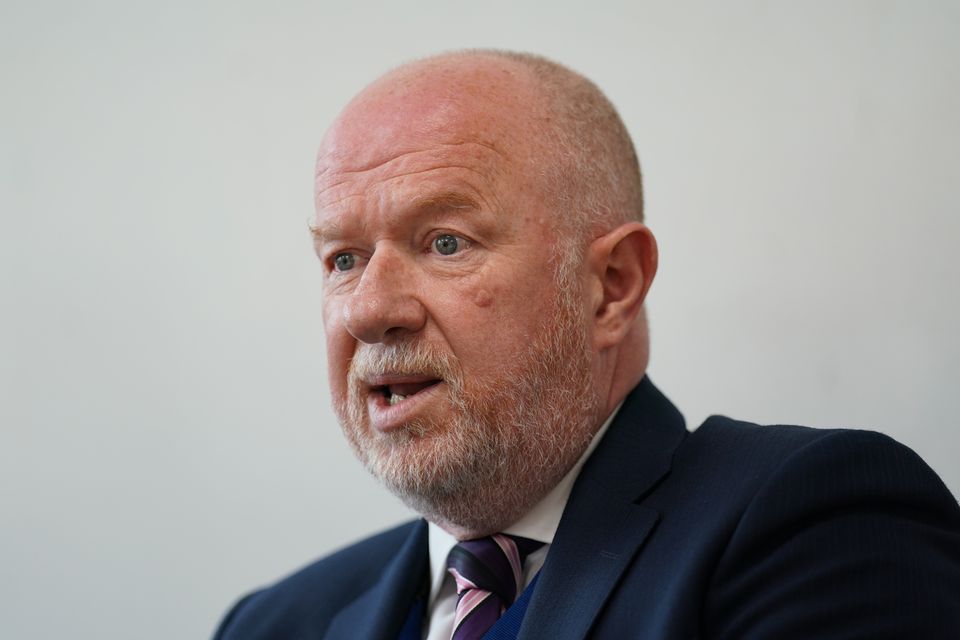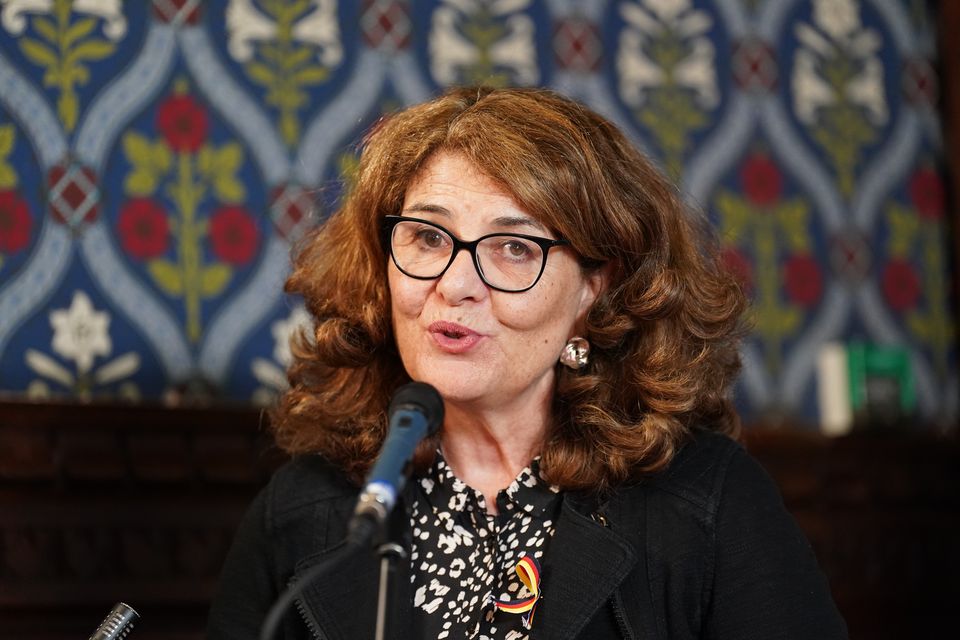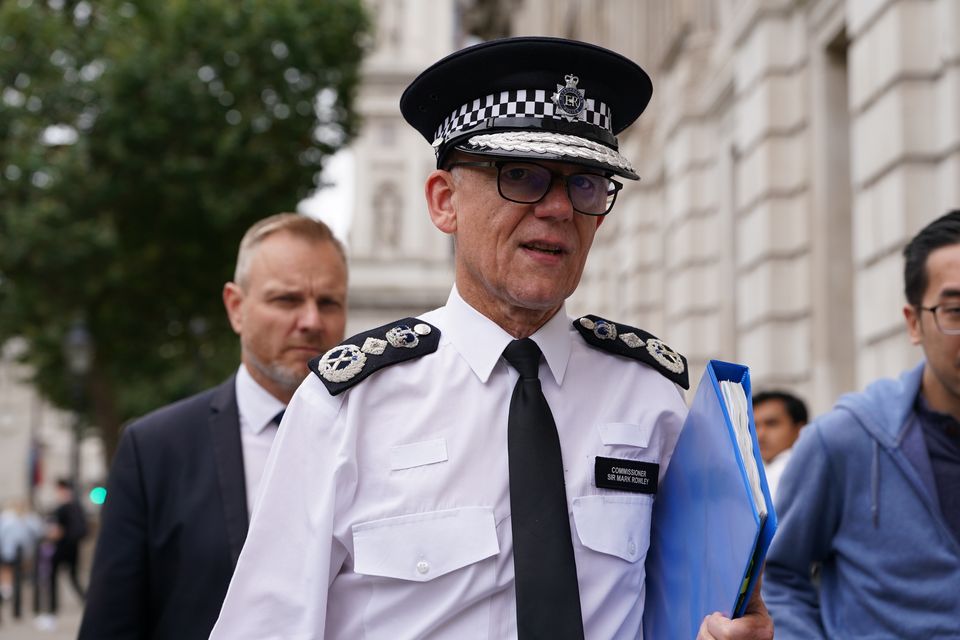Police forces are facing “inevitable” cuts with a £1.3 billion shortfall in funding for next year, chief constables have warned.
Ministers have set out a provisional 3.5% real-terms increase in funding for forces, with a third of the total £986.9 million package depending on council taxes increasing by £14 for the average Band D house.
But senior officers say the settlement means forces will have to make cuts.
National Police Chiefs’ Council lead for finance, Chief Constable Paul Sanford, said: “The funding settlement announced today presents real challenges for policing, with forces facing an estimated £1.3 billion gap in finances over the next two years.
“This will inevitably lead to cuts across forces.
“Investment in neighbourhood policing is welcome, as is the Government’s ambition to support and deliver the wide-scale reform our service needs in order to better protect the public in the long term.
“However, by ringfencing funding for neighbourhood police officers, forces are unable to invest in other specialist areas of policing that are critical to our service.”
Both he and His Majesty’s Chief Inspector of Constabulary Andy Cooke said the formula used to calculate funding levels for individual forces is unfair.
Andy Cooke, His Majesty’s Chief Inspector of Constabulary, is former chief constable of Merseyside Police (Kirsty O’Connor/PA)
Mr Sanford said: “Our current funding model is outdated and means that the funding announced today will not be evenly shared across forces, resulting in some forces facing significant deficits.
“As part of wider police reform, we have long called for a new funding model that would help forces to plan for the future and improve financial resilience.”
Former Merseyside Chief Constable Mr Cooke said some inner city forces with higher levels of serious crimes are left with fewer resources because housing stock is worth less in their area.
He went on: “The police funding formula is an anachronism. It’s not been updated for a long time.
“What it results in, because there is such a reliance on council tax now, (is) the richer police forces get richer, the poorer police forces get poorer.
“So those who can’t raise as much on council tax, which is usually but not in totality the inner city areas – Cleveland, Merseyside, Manchester, West Midlands – don’t have that housing stock that pays big money.
“In order to address some of the issues the government would like to address in relation to knife crime, violence against women and girls, the bulk of those occur in the inner city areas where you’ve got less resources.
“There are numerous financial issues, but there have been the same issues for many years because the police funding formula hasn’t been properly addressed and doesn’t fairly allocate resources.”
Policing minister Dame Diana Johnson told MPs the settlement ‘strikes the balance between protecting taxpayers and providing funding for police forces’ (Stefan Rousseau/PA)
In a statement to Parliament, policing minister Dame Diana Johnson said the 2025-26 settlement for forces will amount to £17.4 billion, an increase of up to £986.9 million on the current year.
She said the funding settlement “strikes the balance between protecting taxpayers and providing funding for police forces”.
The additional funding will cover the costs of the pay rises given to officers, the £230.3 million increase in employers’ national insurance contributions (NICs) and also pay for recruitment to help meet the Government’s neighbourhood policing promises.
The total amount going into policing, including the money to forces along with “wider system funding” will be £19.5 billion, a £1 billion increase, representing an overall 3% real terms rise.
Dame Diana said: “Of the £986.9 million of additional funding for police forces, I can confirm that £657.1 million of this is an increase to government grants, which includes an increase in the core grants of £339 million to ensure police forces are fully equipped to deliver our safer streets mission.
“This also includes £230.3 million to compensate territorial forces for the costs of the change to the employer national insurance contributions from 2025-26, and an additional £100 million to kickstart the first phase of 13,000 additional police officers, PCSOs and special constables into neighbourhood policing roles.
“This will provide policing with the funding required to tackle crime and keep communities safe.”
Police and crime commissioners have the ability to increase the precept – their portion of council tax – by up to £14 per household without triggering a referendum.
“This could generate up to £329.8 million of additional funding available to police forces compared with 2024-25,” Dame Diana told MPs.
Metropolitan Police Commissioner Sir Mark Rowley has painted a sobering picture of his force’s finances (Lucy North/PA)
Metropolitan Police Commissioner Sir Mark Rowley was among police leaders warning of cuts to officer numbers last week.
He told the London Policing Board that the force was facing a £450 million shortfall and could have to cut 2,300 officers and 400 staff.
After the funding level was announced, the force released a statement to say: “Whilst the government has provided additional funding for next year for which we are grateful, the gap remains significant and at this stage, we believe we will still need to make the majority of the tough choices we have planned for.
“We hope that the upcoming Spending Review will help fix our long-term funding issues and put us on a sustainable footing for the future.
“This will be hard for our dedicated officers and staff, but equally will have implications for policing London that we need to work through and communicate when the budget is finalised in the New Year.
“We must now work with the Mayor of London on how best to reduce our services so we live within our means, while doing our best to keep the capital safe.”
Shadow Home Secretary Chris Philp MP claimed the funding gap is equivalent to employing 3,500 officers.
He said: “Labour have no plan to ensure law and order in this country.
“They threw open the prison doors, and now they risk axing 3,500 officers from frontline duty.”


